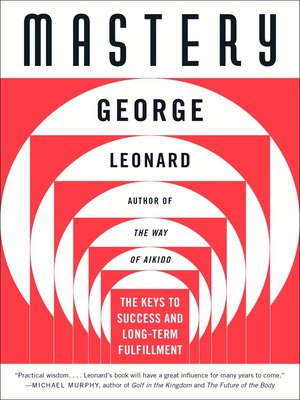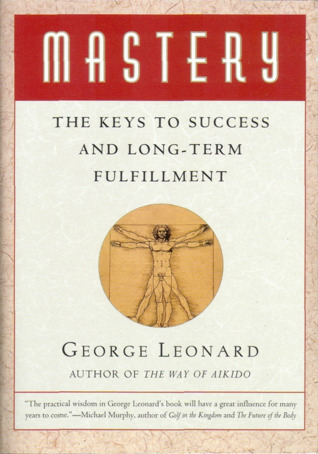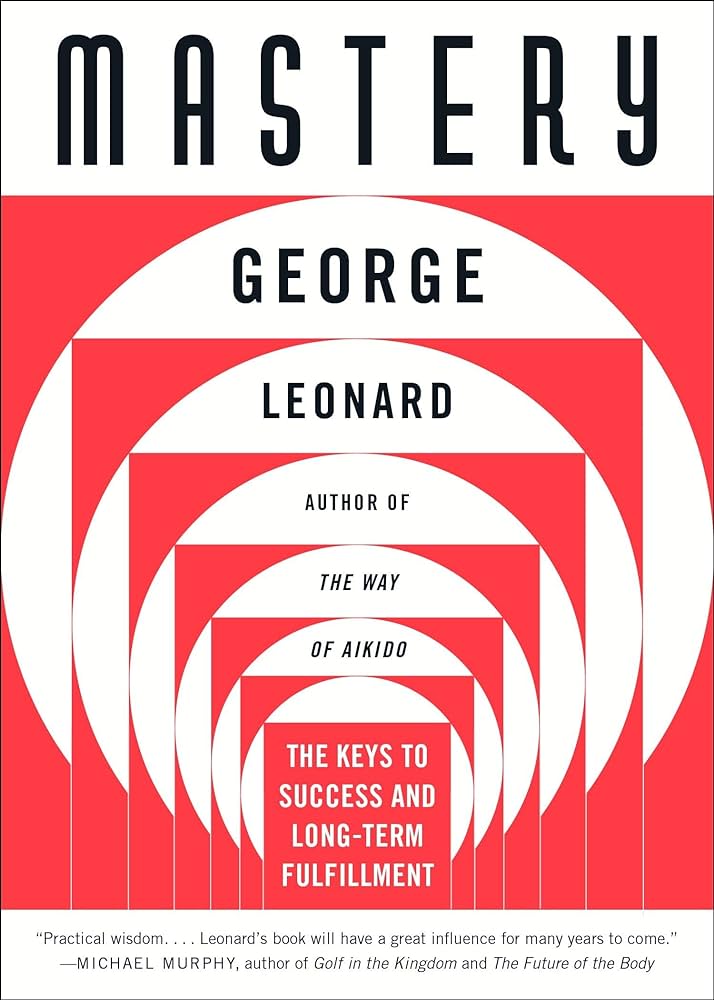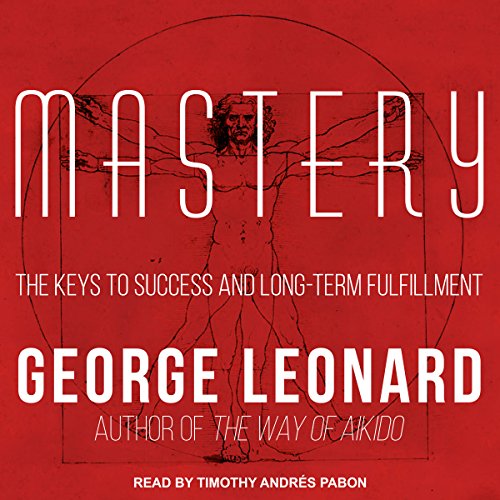George Leonard’s “Mastery” audiobook delves into the journey towards achieving mastery in any field. It emphasizes the importance of perseverance and lifelong learning.
George Leonard, an expert in human potential, presents “Mastery” as a guide to achieving excellence. The audiobook explores the concept of mastery, focusing on the continuous process of growth and development. Leonard argues that true mastery involves dedication, patience, and embracing the plateau periods of learning.
His insights are based on his experiences in aikido and education. The book encourages listeners to value the process over the destination. Leonard’s teachings inspire individuals to commit to their passions and persist through challenges. “Mastery” serves as a motivational tool for anyone seeking to excel in their personal or professional lives.

Introduction To George Leonard And ‘mastery’
George Leonard’s audiobook, ‘Mastery’, offers deep insights into achieving excellence. This book has inspired many to pursue lifelong learning and personal growth. Let’s delve into the author’s background and the core concepts of ‘Mastery’.
The Author’s Background
George Leonard was a writer, editor, and educator. He was born in 1923 and passed away in 2010. Leonard served in the Air Force during World War II. He later became a senior editor at Look magazine.
Leonard was also a fifth-degree black belt in Aikido. His experience in martial arts deeply influenced his teachings. He wrote several books on human potential and education. Leonard’s work focused on personal growth and self-improvement.
Synopsis Of ‘mastery’
‘Mastery’ explores the journey towards excellence in any field. Leonard outlines the key principles needed to achieve mastery. The book emphasizes practice, patience, and dedication.
Leonard introduces the concept of the master’s journey. He discusses the importance of embracing plateaus and setbacks. The book also highlights the role of mentors in achieving success.
Key themes in ‘Mastery’ include:
- Practice: Consistent, deliberate practice is crucial for improvement.
- Patience: Mastery requires time and perseverance.
- Mentorship: Guidance from experienced mentors accelerates learning.
‘Mastery’ is a valuable resource for anyone seeking self-improvement. It offers practical advice and timeless wisdom. The audiobook format makes it accessible for busy individuals.

The Five Master Keys
George Leonard’s audiobook “Mastery” explains the journey to self-improvement. The core of this journey is understanding the Five Master Keys. These keys guide you towards achieving true mastery in any field. Let’s delve into each of these keys.
Instruction
Instruction is the first key. To master a skill, seek the right teacher or mentor. A good instructor provides guidance and feedback. They help you avoid common mistakes. Learning from experts accelerates your progress.
Practice
Practice is the second key. Consistent and deliberate practice is essential. Repetition builds muscle memory and expertise. Practice regularly, even when it’s hard. Mastery requires dedication over time.
Surrender
Surrender is the third key. Accept the process of learning. Understand that mastery takes time. Stay patient and trust the journey. Surrender your ego and embrace continuous learning.
Intentionality
Intentionality is the fourth key. Set clear goals and intentions. Focus on what you want to achieve. Be mindful and present in your practice. Your intention drives your actions and results.
The Edge
The Edge is the fifth key. Always push your boundaries. Seek challenges that stretch your abilities. The edge is where growth happens. Be willing to step out of your comfort zone.
Understanding and applying these Five Master Keys can transform your journey to mastery. They provide a roadmap for achieving excellence in any area of life.
The Three Plateaus Of Learning
In George Leonard’s audiobook, Mastery, he discusses the concept of the Three Plateaus of Learning. These plateaus represent different stages in the journey of mastering any skill. Understanding these stages can help learners stay motivated and persistent, even when progress seems slow.
The Initial Spurt
The first stage is known as the Initial Spurt. At this stage, excitement and enthusiasm drive rapid progress. Learners often see quick improvements, which boosts their confidence and motivation. This phase is thrilling and encourages continued effort.
- Rapid progress
- High motivation
- Increased confidence
The Plateau
The next stage is the Plateau. Here, progress appears to slow down or even stop. This can be frustrating and demotivating for learners. Yet, this phase is essential for deep learning and skill consolidation.
| Challenge | Solution |
|---|---|
| Frustration | Stay patient |
| Demotivation | Keep practicing |
During the plateau, it’s crucial to maintain a steady practice routine. Consistency is key to overcoming this phase and moving to higher levels of mastery.
Higher Peaks
The final stage is reaching the Higher Peaks. After enduring the plateau, learners often experience a breakthrough. This leads to new levels of skill and understanding. Achieving higher peaks requires resilience and dedication.
- Endure the plateau
- Breakthrough occurs
- Reach new skill levels
In summary, understanding the Three Plateaus of Learning can help learners stay motivated. By recognizing these stages, one can better navigate the path to mastery.
Myths And Realities Of Mastery
George Leonard’s audiobook Mastery dives deep into the journey of true mastery. Many myths surround the concept of mastery. Understanding the realities can lead to a more fulfilling path.
Dispelling Common Myths
Many believe mastery is about instant success. This is a myth. Mastery takes time and effort. Here are some common myths:
- Myth 1: Mastery is about talent. Reality: It’s about dedication.
- Myth 2: Success comes quickly. Reality: Progress is gradual.
- Myth 3: Mastery means perfection. Reality: It’s about continuous improvement.
These myths often discourage people. Understanding the truth helps to stay committed.
What Mastery Truly Involves
Mastery isn’t a destination. It’s a journey. Here are the key elements:
- Practice: Regular practice is essential. It’s the backbone of mastery.
- Patience: Progress takes time. Patience is necessary.
- Perseverance: Challenges will arise. Overcoming them is part of the process.
George Leonard emphasizes the importance of loving the journey. Enjoy each step. Celebrate small victories.
In conclusion, understanding the myths and realities of mastery leads to a more rewarding journey. George Leonard’s audiobook Mastery offers valuable insights into this path.
The Pitfalls On The Path To Mastery
Mastery is a journey filled with challenges. In George Leonard’s Mastery Audiobook, he uncovers common pitfalls that hinder progress. Understanding these pitfalls helps you stay on the path to mastery.
Homeostasis
Homeostasis is the body’s resistance to change. It aims to maintain a stable state. When you strive for mastery, your body resists new habits. This resistance can make progress difficult.
To overcome homeostasis, make small, consistent changes. Gradual adjustments help the body adapt. Patience and persistence are key to battling this natural resistance.
Boredom And Impatience
Boredom and impatience are common hurdles on the path to mastery. Repeating the same practice can feel dull. This leads to frustration and a desire to quit.
Recognize that boredom is part of the journey. Embrace the process and find joy in small improvements. Break tasks into smaller, manageable parts to maintain interest.
The Dabbler, Obsessive, And Hacker
Leonard describes three types of learners: The Dabbler, Obsessive, and Hacker.
| Type | Characteristics |
|---|---|
| Dabbler | Excited at first, but quits when progress slows. |
| Obsessive | Demands rapid results and often burns out. |
| Hacker | Settles for good enough, avoids pushing limits. |
Identifying your learning type helps you adjust your approach. Aim for balance and steady progress. Avoid extremes and stay committed to your goals.
In summary, the path to mastery is challenging. By understanding these pitfalls, you can navigate them effectively.
The Role Of A Mentor
In George Leonard’s audiobook, Mastery, he emphasizes the crucial role of mentors. Mentors guide learners on their journey to mastery. They provide wisdom, support, and a roadmap to success. A mentor can transform the learning experience and accelerate progress.
Finding Guidance
Finding the right mentor is vital. A mentor should have expertise in the field. They should also be willing to share their knowledge. Here are some tips for finding a mentor:
- Seek someone with experience and success.
- Look for a mentor who is approachable and supportive.
- Check if they have a genuine interest in teaching.
Mentors can be found in various places. Consider professional networks, educational institutions, or even online communities. The key is to find someone who aligns with your goals.
The Dynamics Of The Mentor-apprentice Relationship
The relationship between a mentor and an apprentice is dynamic. It involves mutual respect and open communication. Here are some elements of this relationship:
| Element | Description |
|---|---|
| Trust | Both parties must trust each other. |
| Commitment | Both must be committed to the learning process. |
| Feedback | Constructive feedback is essential for growth. |
A successful mentor-apprentice relationship can lead to significant personal and professional growth. It fosters a deeper understanding of the subject and helps in achieving mastery.
The Lifelong Journey Of Practice
George Leonard’s audiobook, Mastery, explores the path to excellence. The book emphasizes the importance of consistent practice. Mastery is not a quick fix; it’s a lifelong journey. Leonard teaches us to embrace the process. This involves daily routines, rituals, and patience.
Daily Routines And Rituals
Daily routines set the foundation for mastery. These routines create structure in our lives. They help us stay focused and disciplined. Leonard highlights the power of small, daily actions. Over time, these actions lead to significant improvements.
Consider the following daily practices:
- Start your day with a short meditation.
- Set aside time for deliberate practice.
- Keep a journal to track your progress.
- End your day with reflection and gratitude.
These rituals may seem simple, but their impact is profound. They help maintain momentum on the path to mastery. Consistency is key.
Embracing Plateaus
Leonard emphasizes the importance of plateaus. Progress is not always linear. There will be times when growth seems stagnant. These periods are called plateaus. Instead of feeling frustrated, embrace them.
During plateaus, focus on refining your skills. Use this time to deepen your understanding. Plateaus are opportunities for growth. They teach patience and perseverance. Leonard believes that true mastery comes from enduring these phases.
Remember these points:
- Plateaus are a natural part of the journey.
- Use this time to strengthen your foundation.
- Stay committed and patient.
Mastery is a marathon, not a sprint. Embrace the plateaus, and you will grow stronger.
Applying Mastery To Everyday Life
George Leonard’s audiobook, Mastery, isn’t just about achieving greatness in specific fields. It’s about embracing a lifelong journey of continuous improvement. This audiobook provides valuable insights on how to apply the principles of mastery in everyday life. Let’s explore how these principles can enhance both personal growth and professional development.
Personal Growth
Mastery in personal growth means committing to self-improvement daily. It involves setting clear, achievable goals and working towards them consistently.
- Daily Practice: Dedicate time each day to develop new skills or improve existing ones.
- Embrace Challenges: See obstacles as opportunities to learn and grow.
- Mindfulness: Stay present and focused on your tasks.
For example, if you want to improve your fitness, start with small, manageable workouts. Gradually increase the intensity as you build strength and endurance. Celebrate small victories along the way.
Professional Development
Applying mastery in your professional life can lead to significant career advancements. It’s about striving for excellence in your field through continuous learning and improvement.
- Set Clear Goals: Identify specific career objectives and create a plan to achieve them.
- Seek Feedback: Regularly ask for feedback from colleagues and supervisors to identify areas for improvement.
- Continuous Learning: Stay updated with the latest trends and developments in your industry.
For instance, if you’re a software developer, commit to learning new programming languages or tools. Attend workshops, read industry blogs, and practice coding regularly. This constant pursuit of knowledge and skill enhancement will make you a valuable asset to your team.
Reflections And Closing Thoughts On ‘mastery’
Listening to George Leonard’s ‘Mastery’ audiobook provides profound insights into the path of personal growth. Leonard’s wisdom guides listeners through the ups and downs of achieving excellence. His teachings are timeless and applicable to many areas of life.
Key Takeaways
The audiobook emphasizes the importance of dedication. It teaches that mastering any skill requires patience and commitment. Here are some key takeaways:
- Practice Regularly: Consistent practice leads to improvement.
- Embrace the Plateau: Periods of no progress are normal and essential.
- Focus on the Journey: Enjoy the process, not just the end result.
- Mindset Matters: A positive attitude can make a big difference.
Applying The Concepts
Leonard’s ideas are practical and can be applied in everyday life. Here’s how you can incorporate his teachings:
- Set Clear Goals: Define what you want to achieve.
- Create a Routine: Develop habits that support your goals.
- Seek Feedback: Learn from others and adjust your approach.
- Stay Patient: Understand that mastery takes time.
Real-life Applications
Consider using a table to track your progress. This can help visualize your journey towards mastery.
| Week | Activity | Progress |
|---|---|---|
| 1 | Practice Skill | Improved technique |
| 2 | Receive Feedback | Identify areas to improve |
| 3 | Adjust Routine | Better efficiency |
By following Leonard’s teachings, you can achieve mastery in your field. His audiobook is a valuable resource for anyone on the path to excellence.

Conclusion
Mastery by George Leonard offers profound insights into the journey of continuous improvement. This audiobook inspires listeners to embrace lifelong learning. Achieving mastery requires patience, dedication, and perseverance. Dive into Leonard’s wisdom and transform your approach to personal and professional growth.
Embark on your path to mastery today.



